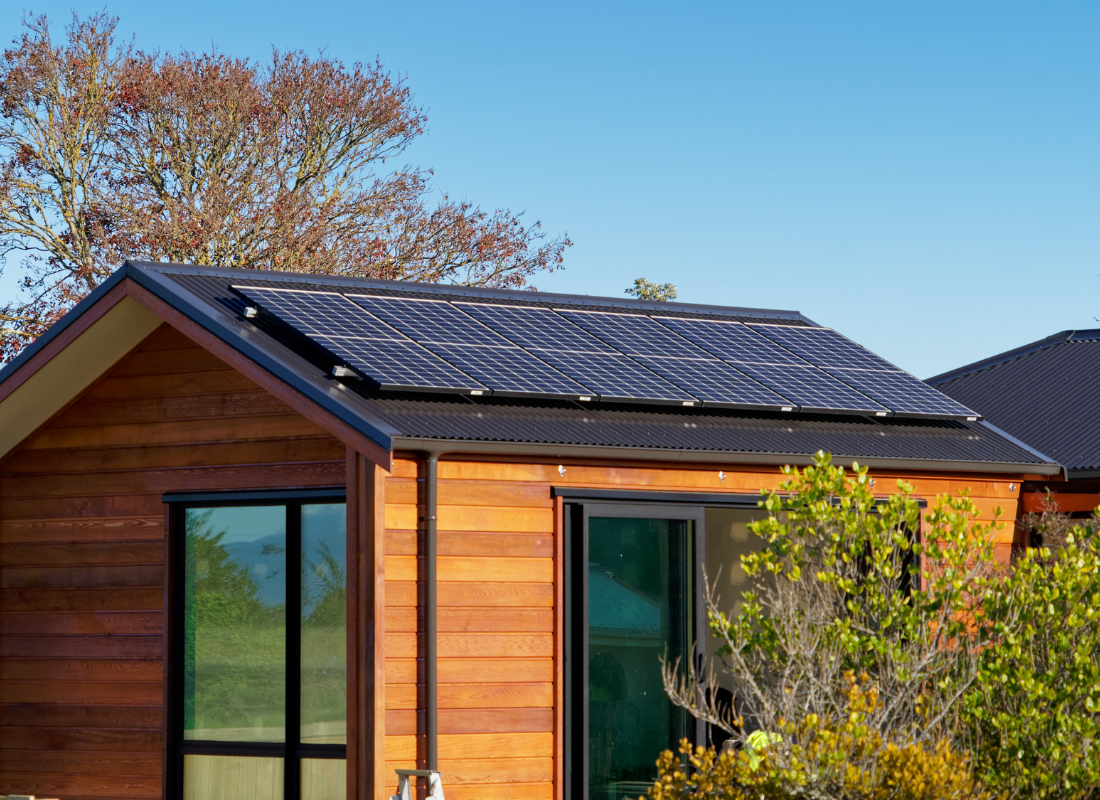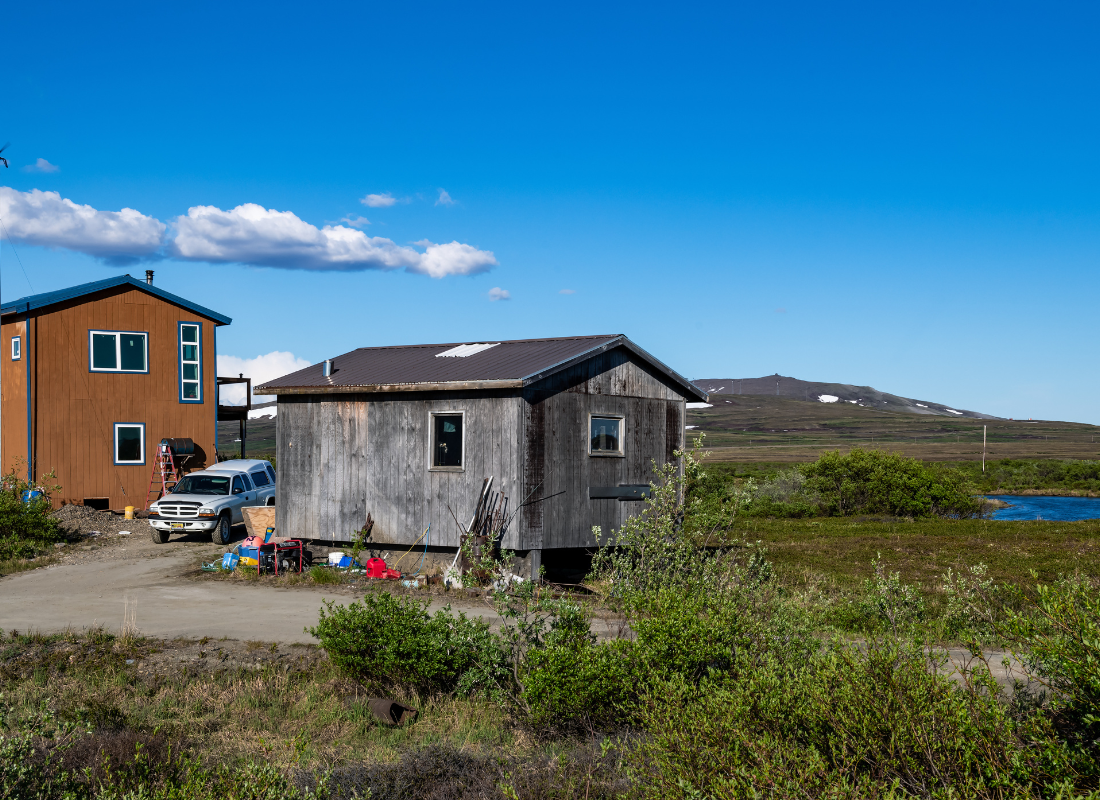
In a world increasingly dominated by technology, urbanization, and rising energy costs, a growing number of people are choosing to step away from traditional lifestyles. Living off the grid—a lifestyle that involves disconnecting from public utilities like electricity, water, and gas—has become a trend that’s not just about sustainability, but also independence and personal well-being. Could you make the switch? Here’s a closer look at the rise of off-grid living, the benefits and challenges, and practical tips to help you decide if this lifestyle is right for you.
What Does It Mean to Live Off the Grid?
Living off the grid means relying on self-sustained systems to meet your energy, water, and waste management needs. This typically includes using renewable energy sources such as solar panels or wind turbines, harvesting rainwater, and composting organic waste. Some people embrace this lifestyle in remote, rural areas, while others adopt partial off-grid solutions in cities, like solar-powered systems and water recycling.
 This lifestyle is about more than just ditching utility bills—it’s about reconnecting with nature, reducing environmental impact, and regaining control over your resources.
This lifestyle is about more than just ditching utility bills—it’s about reconnecting with nature, reducing environmental impact, and regaining control over your resources.
Why Is Off-Grid Living Becoming Popular?
1. Rising Environmental Concerns
The global climate crisis is driving people to adopt more sustainable lifestyles. Living off the grid significantly reduces carbon footprints by eliminating reliance on fossil fuels and encouraging the use of renewable energy.
2. Escaping Urban Stress
 Many are looking for simpler, slower lives away from the hustle of urban environments. Off-grid living offers a peaceful alternative, often in scenic natural settings.
Many are looking for simpler, slower lives away from the hustle of urban environments. Off-grid living offers a peaceful alternative, often in scenic natural settings.
3. Independence from Rising Costs
Energy prices and utility disruptions have made people re-evaluate their reliance on public infrastructure. Going off-grid provides financial security in the long term by cutting recurring costs.
4. Advances in Technology
Renewable energy systems, water filtration technologies, and energy-efficient appliances are now more affordable and accessible, making off-grid living practical for a broader audience.
Inspiring Stories of Off-Grid Living
The Solar-Powered Family in Idaho
 The Johnson family, featured on their popular YouTube channel Martin Johnson – Off Grid Living, left their suburban lifestyle to embrace off-grid living in the rugged landscape of Idaho. Starting with a raw, 7-acre piece of land, they built their homestead from the ground up, focusing on sustainability and self-sufficiency.
The Johnson family, featured on their popular YouTube channel Martin Johnson – Off Grid Living, left their suburban lifestyle to embrace off-grid living in the rugged landscape of Idaho. Starting with a raw, 7-acre piece of land, they built their homestead from the ground up, focusing on sustainability and self-sufficiency.
Through their channel, the Johnsons share their journey of constructing their off-grid home, installing renewable energy systems, and growing their own food using sustainable practices. Their solar-powered setup provides electricity, while their greenhouse enables year-round food production. The family’s resourceful and determined approach to off-grid living has inspired thousands of viewers seeking a more intentional and eco-friendly lifestyle.
Their story highlights both the rewards and challenges of living off the grid, from the joy of self-reliance to the hard work involved in maintaining a sustainable home. The Johnson family’s journey proves that with the right mindset and dedication, living off the grid can be a rewarding and achievable goal.
Van Life: Mobile and Sustainable
 Digital nomads like Emily Parker have transformed vans into mobile homes with solar panels, composting toilets, and water storage. Emily uses her setup to travel sustainably while maintaining a remote career. “I feel free and connected to nature,” she says.
Digital nomads like Emily Parker have transformed vans into mobile homes with solar panels, composting toilets, and water storage. Emily uses her setup to travel sustainably while maintaining a remote career. “I feel free and connected to nature,” she says.
Benefits of Living Off the Grid
1. Environmental Impact
By reducing dependence on fossil fuels and minimizing waste, off-grid living contributes to a healthier planet. Solar panels, wind turbines, and organic farming practices ensure a sustainable lifestyle.
2. Financial Savings
Although the initial investment can be high, off-grid systems like solar panels and rainwater collection pay off in the long run by eliminating utility bills.
3. Independence
Living off the grid offers freedom from power outages, rising energy prices, and infrastructure failures. It’s an empowering way to take control of your resources.
4. Better Quality of Life
Many off-grid dwellers report lower stress levels, better mental health, and a stronger connection to nature. The slower pace allows them to focus on what truly matters.
Challenges of Off-Grid Living
 1. High Initial Costs
1. High Initial Costs
Setting up renewable energy systems, water filtration, and efficient appliances requires significant upfront investment. However, government incentives for renewable energy can help offset these costs.
2. Legal Barriers
In some areas, zoning laws and building codes limit off-grid construction. Researching local regulations is essential before making the transition.
3. Steep Learning Curve
Maintaining self-sustained systems, growing food, and managing energy requires new skills. Many off-grid beginners face a period of trial and error.
4. Social Isolation
Living in remote areas can lead to limited access to community and services. Finding ways to stay connected, such as satellite internet, is important for long-term sustainability.
Could You Go Off the Grid? Tips for Getting Started
 1. Start Small
1. Start Small
You don’t have to move to the wilderness immediately. Begin by integrating off-grid elements into your current lifestyle, like installing solar panels or starting a vegetable garden.
2. Educate Yourself
Learn the basics of renewable energy systems, water management, and permaculture. Online courses, YouTube tutorials, and local workshops can help you gain the skills needed to thrive off the grid.
 3. Choose the Right Location
3. Choose the Right Location
Select a place with access to natural resources like sunlight, wind, or water. Research local laws and permits to ensure your plans are feasible.
4. Invest in Reliable Equipment
Prioritize quality when purchasing solar panels, water filtration systems, and storage batteries. Reliable equipment will save you money and frustration in the long run.
5. Stay Connected
Modern technology, like solar-powered internet systems and mobile hotspots, allows you to stay connected to the world while living sustainably.
The Future of Off-Grid Living
 The off-grid movement is more than a trend—it’s a glimpse into the future of sustainable living. As climate change and urban challenges grow, off-grid solutions are becoming increasingly relevant. With advancements in renewable energy and a global push for sustainability, living off the grid is becoming more accessible and appealing.
The off-grid movement is more than a trend—it’s a glimpse into the future of sustainable living. As climate change and urban challenges grow, off-grid solutions are becoming increasingly relevant. With advancements in renewable energy and a global push for sustainability, living off the grid is becoming more accessible and appealing.
Governments and organizations are also taking note, offering incentives for renewable energy adoption and supporting eco-friendly innovations. This shift toward self-sustained living represents not just an individual choice, but a collective step toward a more sustainable future.
Final Thoughts: Is Off-Grid Living Right for You?
 Living off the grid isn’t just a lifestyle change—it’s a commitment to sustainability, independence, and personal growth. While it comes with challenges, the rewards can be transformative. Whether you want to go fully off-grid or take small steps toward self-sufficiency, every action you take contributes to a healthier planet and a more intentional way of life.
Living off the grid isn’t just a lifestyle change—it’s a commitment to sustainability, independence, and personal growth. While it comes with challenges, the rewards can be transformative. Whether you want to go fully off-grid or take small steps toward self-sufficiency, every action you take contributes to a healthier planet and a more intentional way of life.
So, could you live off the grid? The answer lies in your willingness to embrace change, learn new skills, and prioritize what truly matters in life.




